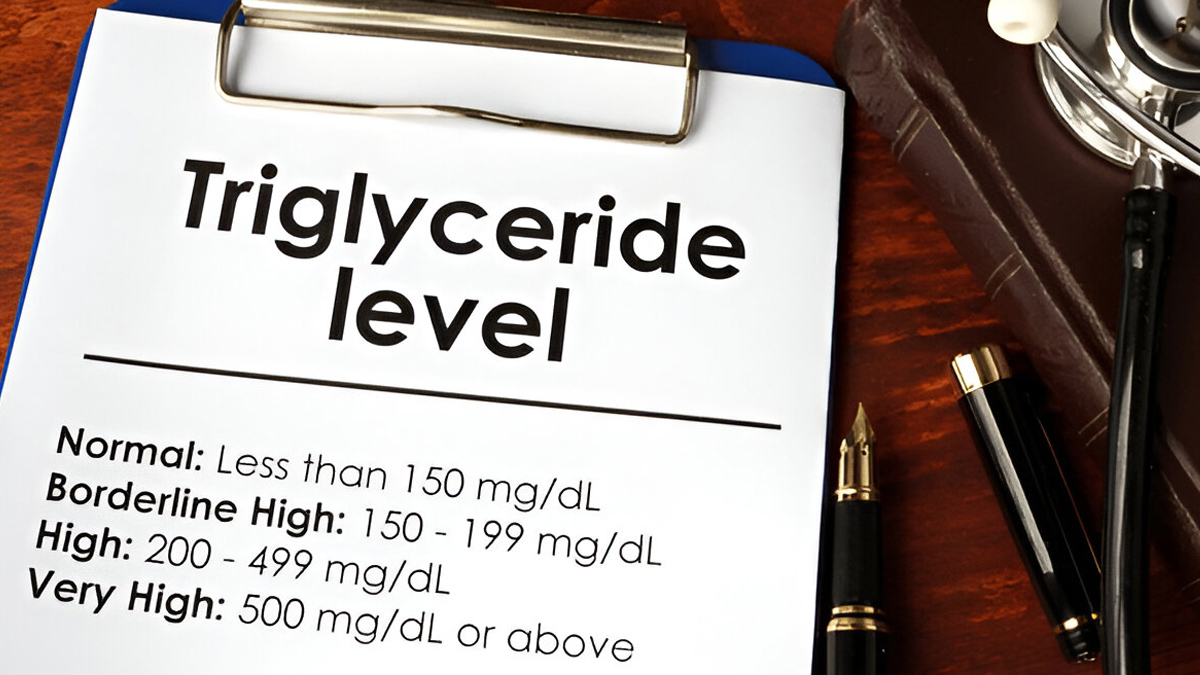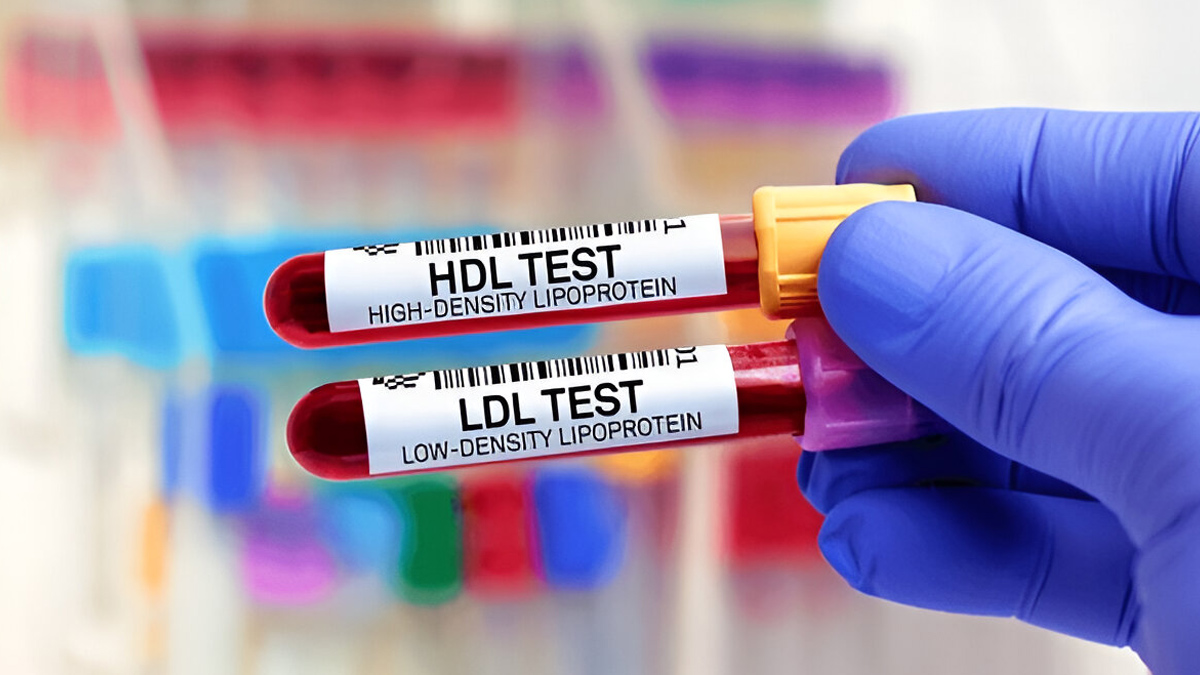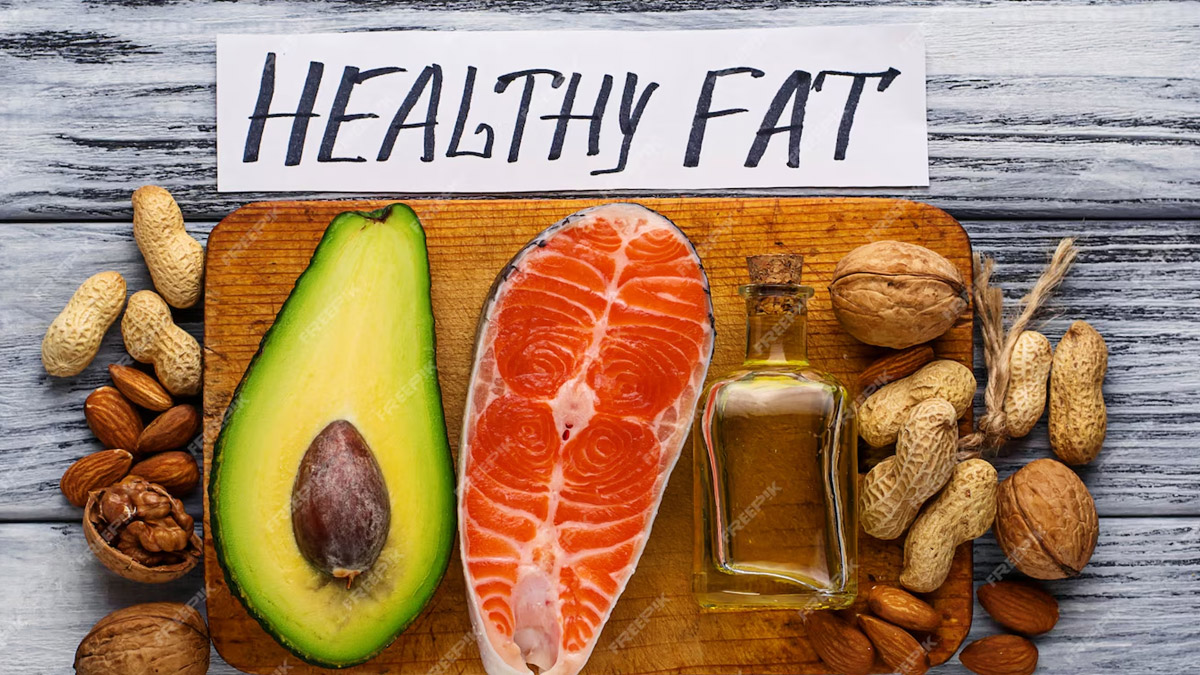
Every time you get a lipid profile test, a doctor is likely to check for your cholesterol and triglyceride levels. While both of these lipids, or fats, found in the blood increase the risk of heart diseases, they aren't the same and have different management and treatment approaches. In fact, not all cholesterol is bad—some even helps reduce Cardiovascular Disease (CVD) risk.
Table of Content:-
In an interaction with the OnlyMyHealth team, Dr Prateek Chaudhary, Senior Consultant - Interventional Cardiology, Asian Hospital, Faridabad, shares some differences between triglycerides and cholesterol, from contributing factors to treatment approaches.
Also Read: Age-Wise Cholesterol Guide: How Much Should Your Cholesterol Be At Each Age? Doctor Explains
What Is High Triglyceride?

Triglycerides are a type of fat found in the blood and are the most common type of fat in your body. They are formed from glycerol and three fatty acids and are crucial for providing your body with energy.
High triglyceride levels, or hypertriglyceridemia, refer to an excess amount of fat in the blood, which can contribute to the buildup of plaque in the arteries, also called atherosclerosis, and increase the risk of heart disease and stroke.
What Is High Cholesterol?
High cholesterol also increases the risk of heart diseases like heart attack and stroke, but they aren't the same as high triglycerides.
Cholesterol is a waxy, fat-like substance found in the blood that's essential for building cells and producing hormones. There are different types of cholesterol:
Low-Density Lipoprotein (LDL) cholesterol: Often called 'bad' cholesterol, high levels can lead to plaque buildup in arteries.
High-Density Lipoprotein (HDL) cholesterol: Often called 'good' cholesterol, it helps remove cholesterol from the body and reduces the risk of heart diseases.
High Triglycerides Vs. High Cholesterol: How Are They Different?

According to Dr Chaudhary, triglycerides are a type of fat found in your bloodstream. "When you eat, your body converts excess calories, especially from carbohydrates and sugar, into triglycerides and stores them in fat cells for future energy use. Later, hormones release these triglycerides to provide energy between meals."
On the other hand, cholesterol, particularly LDL cholesterol, is often referred to as "bad cholesterol" because it carries cholesterol from the liver to the arteries, and high levels can contribute to plaque buildup, potentially leading to heart disease and stroke.
While both are part of a lipid profile, triglycerides are more about fat storage and energy, whereas LDL is more about cholesterol transport and arterial health.
Additionally, Dr Chaudhary notes that while elevated LDL cholesterol is a well-known risk factor for atherosclerosis, heart attacks, and strokes, triglycerides, although less directly involved in plaque formation, can be associated with insulin resistance, obesity, and increased risk of pancreatitis.
“By measuring both, doctors can assess the full spectrum of lipid-related risk and create a personalised prevention or treatment plan. It gives a more complete picture than checking just one component,” he adds.
Also Read: High Triglycerides Are Harmful For The Heart, But How Does It Impact Your Risk Of Diabetes?
Difference In Contributing Factors
High triglycerides and bad cholesterol (LDL-C) levels are often influenced by a combination of lifestyle choices, underlying health conditions, and genetics. Diet, lack of physical activity, and excessive alcohol consumption are major contributors to both conditions.
According to Dr Chaudhary, certain lifestyle choices may particularly contribute to high triglyceride levels. "The most common reason is a diet high in sugar, refined carbohydrates, and excess calories," he shares, adding that overeating, especially foods like white bread, sweets, and sugary drinks, can lead to increased triglyceride production.
"Drinking too much alcohol also raises triglyceride levels significantly, even in people who eat a balanced diet otherwise.
Moreover, being overweight or obese, especially with fat around the belly, contributes heavily to high triglycerides.
On the other hand, high intake of saturated and trans fats can increase cholesterol, or LDL cholesterol, levels. Saturated fats are mainly found in animal products and some tropical oils, while trans fats are often found in processed foods and some animal products.
‘Some With High Triglycerides May Have Normal Cholesterol, And Vice Versa’

“It is quite possible to have high triglycerides with normal cholesterol, or the opposite,” says Dr Chaudhary, who explains, “These two markers are regulated differently in the body. For instance, someone who consumes too many sugary foods may have high triglycerides but normal LDL levels. Similarly, a person with a family history of high LDL cholesterol may have elevated LDL despite having healthy triglyceride levels.”
This is why a complete lipid profile is essential; focusing on only one type of lipid could miss an important part of someone’s cardiovascular risk.
Each number tells a different story, and both are important for overall heart health.
How Treatment Approaches Differ For High Triglycerides And High Cholesterol
As per experts, the treatment approach for high triglycerides and high LDL cholesterol is often different because they respond to different types of interventions.
The treatment approach for high triglycerides and high LDL cholesterol is often different because they respond to different types of interventions. According to Dr Chaudhary, for high LDL cholesterol, doctors usually recommend reducing saturated and trans fats in the diet, increasing physical activity, and, if necessary, prescribing statin medications. LDL levels are more directly affected by cholesterol intake and liver function.
"On the other hand, high triglycerides respond more to reducing sugar and alcohol intake, losing weight, exercising regularly, and possibly taking omega-3 supplements or fibrate medications," he adds.
While both conditions benefit from a healthy lifestyle, the focus areas, such as lowering fat versus lowering sugar, vary based on which lipid is elevated. Treatment is most effective when tailored to the specific issue.
Conclusion
Both high triglyceride and high cholesterol levels are significant risk factors for heart disease. However, the two are completely different, with varying contributing factors and distinct treatment approaches. Getting a lipid profile test can help you evaluate your lipid status in the body, which can help your doctor assess your risk of Cardiovascular Diseases (CVDs).
Also watch this video
How we keep this article up to date:
We work with experts and keep a close eye on the latest in health and wellness. Whenever there is a new research or helpful information, we update our articles with accurate and useful advice.
Current Version